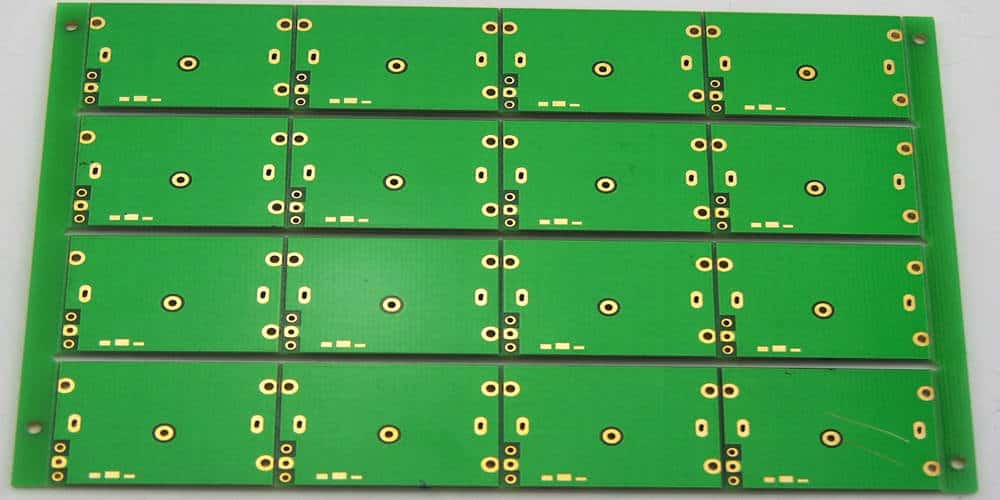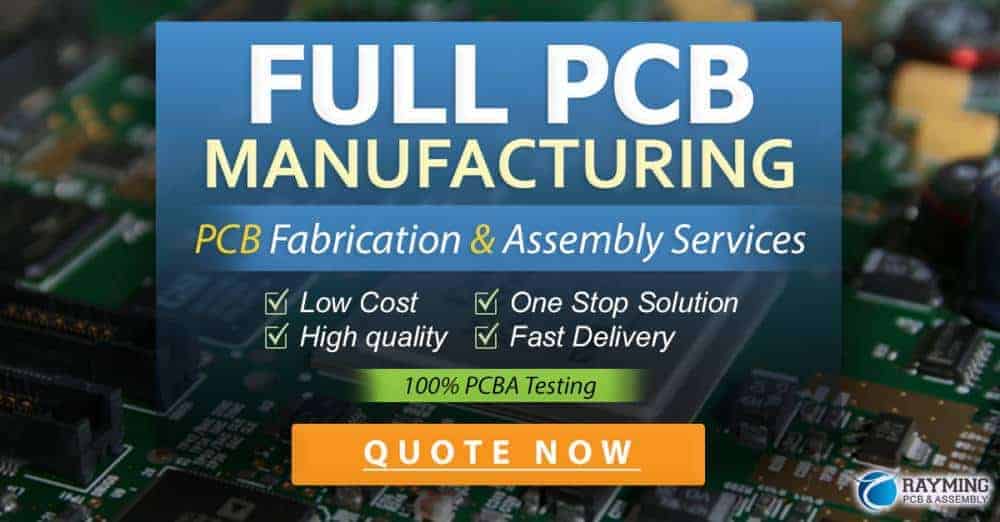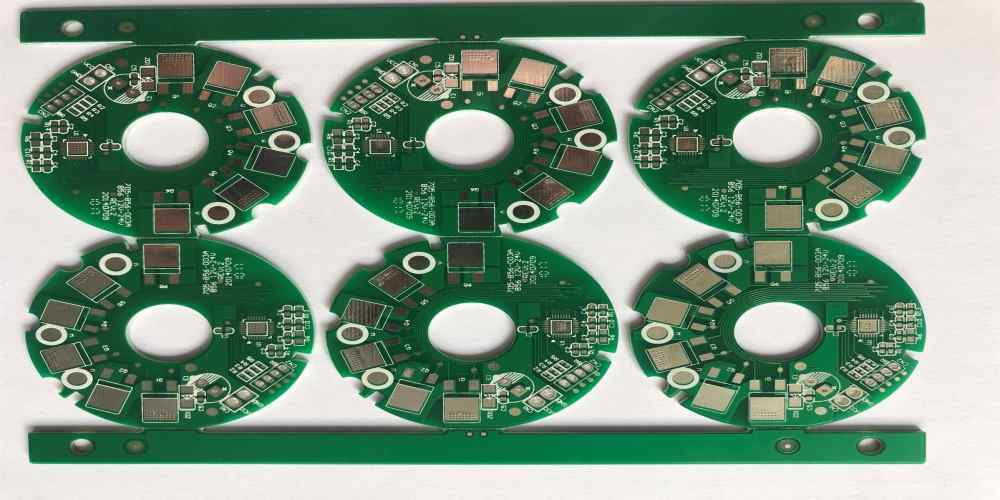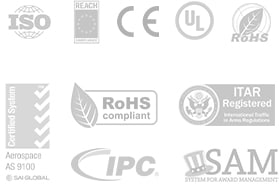In electrical equipment, the PCB (printed circuit board) holds fundamental importance. It is, therefore, critical to find a dependable supplier for small-order printed circuit boards. If you require a high level of customization when attaching elements to a limited number of circuit boards, opting for small-batch PCB assembly is the ideal solution. And when it comes to shipping electronic equipment, small-batch PCBs are an absolute must.
Avoid finding yourself in a situation where mass formation reveals significant flaws. Instead, consider exploring options for low-volume PCB manufacturing, which typically maintains uncompromised quality. That’s why selecting a dependable business partner, particularly one with expertise in limited printed circuit board fabrication/low-volume manufacturing, is crucial.

Things To Consider When Selecting A Small Quantity PCB Manufacturer
When selecting a PCB manufacturer, prioritizing high-quality printed circuit boards is essential. While smaller businesses may face limited resources, a dependable two-sided printed circuit board supplier can promptly identify and rectify any quality issues before bulk formation commences. Small-batch circuit creators offer the added advantage of on-the-spot creation, unlike more prominent vendors. And for those seeking even greater personalization, a trustworthy PCB supplier should provide a range of coating alternatives, including CEM-1, Rogers 4003, and FR-4. While major producers such as RayMing Technology often favor the latter. Multi-layered boards can be advantageous for both LF & HF circuits, enabling features such as power grids across circuit traces and separate layers for ground planes. Such capabilities enhance productivity by reducing the inefficiencies of crosstalk interference & signal weakening caused by extra length.
If you come across a manufacturer that appears to meet your needs, be sure to review their pricing. Many manufacturers offer the option to request a quote by providing details about your order. Remember that shipping costs can be a significant factor in deciding the overall price, so that location may play a role. However, you may find that a manufacturer outside your borders offers more competitive pricing.
When seeking a dependable PCB maker, the cost of components is just one factor to consider. The quality and range of printed circuit boards they produce should also be considered. To illustrate, you wouldn’t purchase a digital game from a store that primarily markets washing machines.
PCB manufacturers who cater to small orders must adapt their board production methods. Vendors may only offer slow and expensive options such as AO, SMD, and CSP. It’s essential to consider factors such as trace routing, plating, and clearance. Ask your suppliers if they can create personalized stencils for your 3D printing/silk screening needs on your PCB.
In addition to pricing, the turnaround time of a PCB company is crucial. Typically, two-layer circuit boards can be produced within one working day. However, if you order a small circuit board before noon, the expected delivery time for your item is the next day. For overnight or next-day deliveries, quick completion times of a full day or less may be available, enabling you to start integrating the PCB into the projects as soon as it arrives, avoiding procrastination caused by waiting for parts.
When it comes down to it, a few factors impact the cost of small-batch circuit board fabrication. It’s crucial to select a company that meets both the technical specifications and budgetary constraints. Planning a PCB with a few unique components from a local manufacturer and giving yourself a lot of time to complete the project can help you to save your budget.
Getting revenue from outsourcing Small Quantity PCB

Following this suggestion can make your experience of outsourcing for small-scale manufacturing better.
· Custom materials
Manufacturers may encounter problems with sourcing if their formation partner requires unique components. These issues include increased minimum purchases, unexpected price increases, substance degradation, etc.
To avoid last-minute material shortages, it can be helpful to have your formation partner conduct quarterly surveys to know any changes in your material needs.
· Divide and rule
It’s essential to understand why a trustworthy partner might decline your business offer. For instance, repurposed printed circuit board manufacturers may only be equipped to manage a limited variety of batch sizes. However, if they take on more orders than they can handle, it could result in shipping delays for all customers, so they need to maintain a manageable workload.
Consider collaborating with two small-circle printed circuit board suppliers if you anticipate varying batch requirements. Both suppliers should be able to create PCB assemblies, but one may be better suited for the mass formation of printed circuit boards. This benefits both parties and ensures that you have a trustworthy, verified contact to depend on.
· Technical requirements.
Certified PCB manufacturers cater to a diverse range of clients, each with unique and specific requirements. That’s why it’s crucial to provide a detailed description of all your needs to the production company. This is especially important when launching a new product to the market or adhering to corrective adequacy principles or other regulations that diverge from established norms.
· Concerns and problems
Switching contract manufacturers is a general practice in the industry, but it can be costly and risky compared to managing with an established partner. Therefore, it’s crucial to discuss and assess the situation thoroughly. Often, it’s not the issue but the supplier’s response to the problem that builds confidence.
Partners who shy away from conflicts tend to let them rot, leading to significant damage in the long run. On the other hand, strong business connections are founded on authenticity, loyalty, commitment & open communication, all of which create an environment conducive to fostering a meaningful relationship over time.
You should initiate a conversation with your small-batch PCB assembly company and discuss any significant issues you have not yet disclosed, regardless of the length of your business relationship. Express your concerns and ensure that your problems receive the necessary attention.
Benefits of Small Quantity PCB Manufacturer

Every electronic device requires a printed circuit board (PCB) to function correctly. As technology permeates every industry, more and more businesses recognize the need for quick equipment advancement.
As technology penetrates all industries, businesses increasingly realize the need for rapid equipment advancement. To remain competitive and indispensable, companies must innovate constantly and release new products with improved features. Therefore, it has become crucial to move quickly through development & deliveries. Thus, many companies produce PCBs in small quantities instead of in bulk. There are several benefits to small-batch production, including
· Quality products
Small-batch PCB production enables R&D professionals to concentrate on gathering direct client feedback for enhancing current products. Similar to software, the equipment can also benefit from upgrades and fixes.
Startups & crowdsourcing projects that depend heavily on responsive collaborations with their partners can benefit significantly from this advancement approach, ultimately resulting in a customized product that surpasses the expectations of the customer base.
· Cost-effective
Numerous businesses are reluctant to transition to small-circle PCBs due to their accustomed preparation for large-scale formation runs. However, creating excessively similar products can generate a perception of wastefulness. As the number of “useful” printed circuit boards grows, the price per circuit board may substantially decrease.
It’s apparent that if you expect to sell only a few hundred circuit boards per month, sending out a large scale all at once is not a wise decision. This is especially important if the plan is still being worked on or if it would cost too much to keep things stored for a long time.
In today’s business environment, where industries are highly competitive, specific sectors are volatile, and there is an ever-increasing demand for innovation (such as in the mobile phone industry), mass production is becoming less logical.
· Quick Turnaround
It is logical to assume that producing products in small batches would be a fast and straightforward process applicable in the planning and construction phases. Smaller batches result in fewer errors, making it easier to identify & eliminate the reason for the defect on boards through further testing and strategy adjustments. However, deep testing can be wasteful during mass production due to the larger sample size.
The expertise & flexibility of a fast producer is crucial in this scenario. The range of issues is diverse, and repair specialists & quality engineers realize and resolve them quickly and efficiently without causing delays. This strategy is beneficial when promoting products is of utmost importance, and there are ongoing efforts to develop better versions.
Some printed circuit board assembly services offer a comprehensive solution in an impressively brief timeframe. These services include circuit board fabrication & parts acquisition, which aid in simplifying the assembly procedure and enhancing overall efficiency.
Conclusion
By partnering with a reputable small-batch printed circuit board giver, you can manufacture your design without sacrificing quality or reliability. When selecting a small printed circuit board giver for your upcoming projects, remember the following points.
- Verify the dependability of the supplier.
- Check if they have a significant local & global online presence
- Ensure they offer timely service and maintain open communication channels with their customers.
- Ask about component availability, design rules, layer specifications, and assembly options.
- Determine the turnaround time for your project, considering a range of possible options.
- Gather information about the vendor’s quality assurance protocols and consider them when making your last decision.
Use this guide to help build your best team of printed circuit board suppliers. If you’re eager to begin your design process, find it easy to work with RayMing Technology.
Related posts:
- The Complete Guide to Micro Electronic Assembly and How It is Disrupting the Manufacturing Industry
- Why Blue PCB is Gaining Popularity in the PCB Industry
- What Is The Average Circuit Board Cost, And What Factors Determine The Pricing?
- LTM8033IY#PBF is an EMC-Compatible µModule Buck Converter: Here’s How It Works

